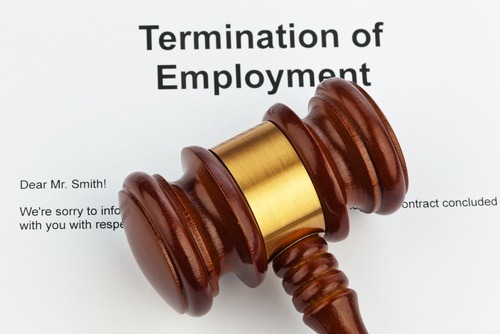Taking on new staff can seem like a leap of faith, especially for SMEs fearful of dismissal disputes in the event that things don’t work out. Tribunals are costly, not just in terms of their expense – as this falls to the company – but they are also stressful and can present a serious drain on the company’s resources by tying up managers for days on end. From professional experience this long-drawn-out process can often take upwards of six months between the claim and hearing.
The best advice to avoid a tribunal is to minimise the risk of employees successfully contesting their dismissal, which means ensuring you are clued up on the correct procedure.
Crucial to this is the need for clear communication as it is not enough to simply comply with procedure, you also need to explain these steps to the employee in question and most importantly why they are taking place; this needs to be a dialogue.
Related: What happens if your small business is taken to an employment tribunal?
A few best practice guidelines to follow for each dismissal category, which barristers like myself always advise to clients when guiding a case or providing independent advice to avoid tribunal, are as follows:
Capability
Key to issues around capability – where the employee is simply not up to the job – is the need to give the employee a chance to improve. You need to clearly set out where they are falling short – are they too slow, are they lacking key skills – and decide on fair targets to be met following a period of review.
Remember to also consult the employee’s contract and job description to make sure your demands are in line with their actual job requirements.
Gross misconduct
Before the internal disciplinary hearing, be sure to undertake a thorough investigation, taking into account different versions of events and approaching the exercise with an open mind.
Keep written minutes of each meeting and have the employee sign-off on each as a record of what was said. A paper trail is especially valuable in the event of a misconduct hearing being contested.
Share information gathered with the employee and ideally give them at least a week’s notice to prepare for the disciplinary hearing.
As a general guideline as a company you also need to decide on sanctions and keep consistency. Generally, you shouldn’t fire someone for an offence that another employee only received a final warning for unless there are clear differences between the two cases. Avoiding allegations of personal bias is key.
Ill health
In instances of ill health you may be expected to make reasonable adjustments to accommodate the employee wherever possible, be it reducing hours or investing in appropriate software to assist them in undertaking tasks.
Similarly, if the period of ill health is relatively short you are more likely to be expected to keep them on, and then justify your case if unable to keep them on the payroll beyond this timeframe.
In all cases where someone’s health is affecting their performance of their job, you need to refer to their doctor and an occupational health expert before pursuing dismissal, always ensuring any decision you make has taken into account up-to-date medical advice and prognosis.
Redundancy
Redundancy has the clearest parameters and is the least affected by individual circumstance yet is often litigated in tribunals. In all cases where you pursue redundancy you need to demonstrate that the employee’s job will no longer exist or that you no longer need so many people to carry out the function they undertake. Again, a dialogue with the employee is vital. In redundancy situations the employee may expect to be given reasonable time off to attend interviews to find a new job.
To reduce the risk of a dispute you need to also be aware that:
- Fair selection criteria must be met when selecting the individual for redundancy, and the employee must be consulted about these reasons for their selection. Again avoiding subjective assessments is important, the criteria should be objective
- In the event of a genuine redundancy, employees must also be considered for redeployment if possible. This may involve a trial period without losing their right to redundancy pay.
Nevertheless despite the best efforts of those involved, employment tribunals can become a business reality, and when faced with a claim it is best to take them seriously from the outset, regardless of your opinion of the claim’s substance. Just as critical is to file your response to the claim within the 28-day timeframe, as a failure to do so will often result in a default judgment in the employee’s favour or an order preventing you from taking part in the proceedings.
Ultimately, when it comes to preparing your case, this is where your earlier due diligence will reap dividends. Tribunals are not interested in hearing an employer explain ‘what we know’, rather the tribunal work on the basis of ‘what an employer can prove’. By having policies and practices in place, by keeping a paper trail, and establishing that correct procedure and clear communication took place, you avoid ‘your word against theirs’ arguments.
Consulting with an expert barrister directly can also provide a great steer on the merits of your case and provide you with the best options to pursue. Having easy access to expert advice could be invaluable for smaller companies, without a dedicated HR department, or those with the capacity to do some of the basic preparation for a case themselves in the interest of avoiding high solicitor fees.





